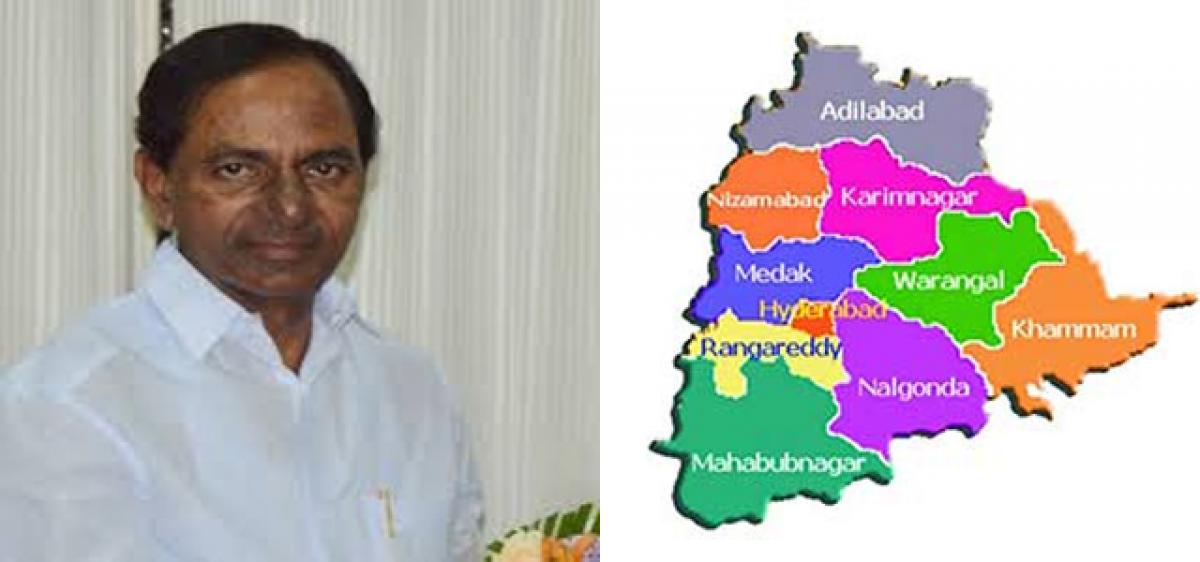Live
- Man smashes Ola scooter after receiving Rs 90,000 bill for repairs
- Ajit Pawar elected as leader of NCP in Maha Assembly
- Love, murder, cover-up: Married man kills live-in partner, sets body on fire
- Kishida launches new group within ruling LDP: Report
- Shreya Ghoshal to perform in 'Tripura Tourism Promo Fest'
- Congress lost its stature as brand, now just a regional party: Kangana
- Abu Dhabi T10: New York Strikers reflect on dominant bowling display in win over Bangla Tigers
- VHP Karnataka Resolves to Oppose Alleged Land Encroachments Under Wakf Board
- Formula 1: Verstappen claims fourth drivers' title as Russell leads Mercedes 1-2 in Las Vegas
- Air quality in Kolkata, Howrah deteriorates
Just In

Historically, the district remained the most important unit of administration. But, over a period of time, the responsibilities of district administration have registered unprecedented expansion, making the District Collector virtually the emperor of district.
Historically, the district remained the most important unit of administration. But, over a period of time, the responsibilities of district administration have registered unprecedented expansion, making the District Collector virtually the emperor of district.
As the democratic India saw more and more enactments, the responsibilities of the district administration grew manifold. With the increased State engagement with people as democracy got deep roots, the administrative tasks performed by the district administration continue to swell.
Especially after the anti-poverty and rural development programmes started dominating the public policy, the coordinating and synthesising functions of district administration in such efforts assumed enormous importance.
Meanwhile, the population growth and the increasing state spending added to the burden of district administration. Despite democratic decentralisation, the institution of District Collector remains the focal point at which various agencies and institutions at the district level converge for guidance cum monitoring and supervision.
District Collector is formally or informally responsible for diverse functions ranging from delivery of essential services, land revenue administration, execution of rural development programmes, disaster management, overall supervision of law and order etc.
The needs of people are ever expanding. The interaction between the government and the citizen is more frequent today. There is an urgent need to make districts smaller units so as to make the institution of District Collector strong and effective.
In fact, as the Second Administrative Reforms Commission observed, the cutting edge of a government’s function is at the district and lower levels. The then Prime Minister of India in his address at the district magistrates conference in 2005 May 20 underscored: someone said India lives in states.
But, India lives in districts. Smaller districts are therefore essential for effective provisioning of education and health facilities for improving human infrastructure, providing physical infrastructure, improving economic opportunities for margianlised sections of society, preparing the society at large to face the challenges of disasters, etc.
Many of such functions are better performed at the district level rather than at the state level. Smaller districts can promote best practices in good governance, promote innovation and enhance greater people’s participation in governance.
The 73rd and the 74th constitutional amendments brought in local self-government as the third tier in the democratic structure. The representative district government can be empowered by optimal utilisation of the institutional strength of district administration.
The reorganisation of districts should be accompanied by provisioning sufficient number of employees and other infrastructure to ensure efficient administration in the new districts. This may entail higher non-plan expenditure.
But, effective governance can accelerate economic growth thus compensating for higher public expenditure. Notwithstanding the initial hiccups, which are often expected, the state government should continue to show a similar resolve in further strengthening the functions of district administration so as to evolve them into grassroots institutions of government. This requires a much greater political will for democratic decentralisation.

© 2024 Hyderabad Media House Limited/The Hans India. All rights reserved. Powered by hocalwire.com







